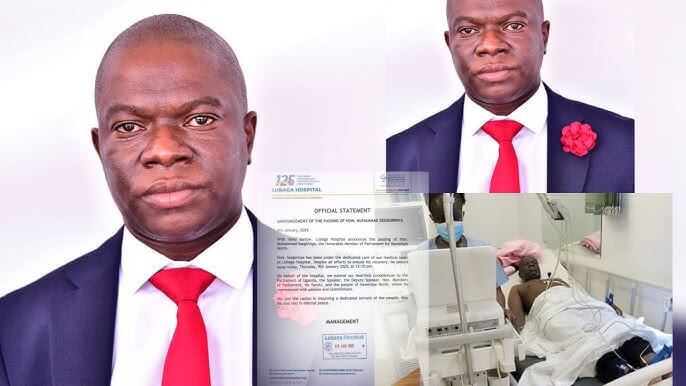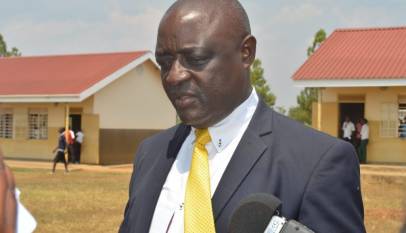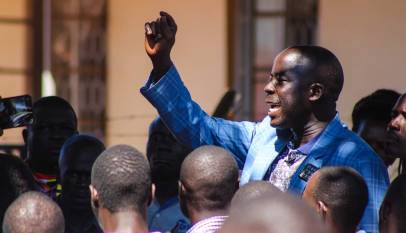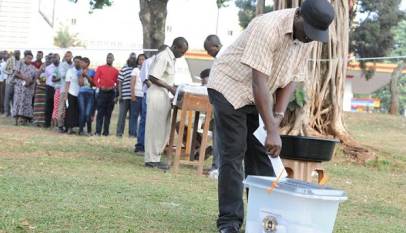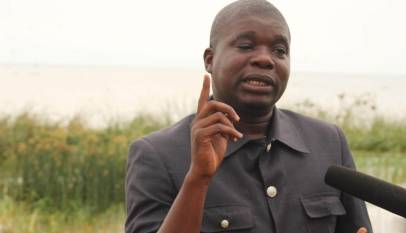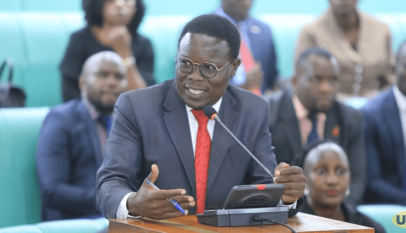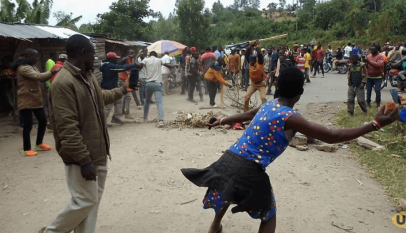No More Updates: Ssegirinya’s Rise from Street Voice to Legislator
In movements of resistance, where voices rise to challenge the established order, there is often one figure who stands out, speaking for the unheard masses. For the residents of Kyebando, a vibrant suburb in Kawempe North, that voice was Muhammad Ssegirinya.
From radio calls to street protests, Ssegirinya’s name became synonymous with the fight for the marginalized, earning him the title “Eddoboozi lya Kyebando” — “The Voice of Kyebando.” This slogan not only encapsulated his political identity but also laid the foundation for a career that captured the hearts of many.
The voice fell silent at 12:10 PM on Thursday when the legislator was pronounced dead at Lubaga Hospital, where he had been admitted.
“We have lost a great leader, a man with a big heart,” said one Kawempe North resident, who joined a crowd of mourners gathered at Ssegirinya’s office in Kyebando. Both the young and old, men and women, were seen shedding tears, recalling the moments they shared with their dearly departed leader.
Born in 1988 in Kadugala, Masaka District, Richard Ssegirinya, who would later become known as Muhammad Ssegirinya, having embraced the Islamic faith, grew up in a Catholic family. He began his education at Kadugala Primary School from where he completed his primary education.
Although he desired to join St. Henry’s Kitovu or Makai College Nateete for his secondary school education, his family’s financial stand could not permit it. The sugar cane he sold to support his primary school education could not sustain him through secondary school at the two schools thus settling for Kaddugala Secondary School.
His financial struggles never ended, until dropping out. His father planned to enroll him at a garage to acquire skills as a mechanic. Meanwhile, he continued to do petty jobs such as loading trucks from Kampala to his village to collect Matooke for sale.
One of the traders from Kampala offered to bring him to Kampala where he would get a scholarship. Aboard a truck carrying Matooke, Segirinya entered the City where he would continue his education, start advocacy and later join politics.
The trader, he identified as Kato in his story on NTV introduced him to Pimbus Secondary School in Kyebando where he was given half bursary to continue his education. He was later able to study a course in journalism.
Despite facing the hardships of poverty in his early years, Ssegirinya was driven by a relentless determination to make a meaningful impact.
Against the odds, he rose to prominence and became a powerful figure in Kampala’s political landscape, carving out a place for himself as a voice for the marginalized.
From around 2006, he gained recognition as a regular caller to political talk shows on various radio stations, often signing off with his famed catchphrase, “Ssegirinya Eddoboozi lye Kyebando”.
His grassroots activism, coupled with a distinctive style marked by sharp wit, humor, and a commanding presence on social media, quickly made him a household name. His ability to connect with audiences on a personal level resonated deeply with people who viewed him as a true man of the people—fearless in his challenge of the status quo.
With the rise of social media, Ssegirinya quickly adapted, using platforms like Facebook and TikTok to deliver live updates on the nation’s most pressing issues and political events.
His unique approach to political commentary captivated audiences, making him a household name across generations and backgrounds. It was through these digital platforms that he earned the moniker “Mr. Update,”.
“Mr. Update” became his second name, a title he embraced during his campaigns where he conducted interviews with Ugandan migrant workers heading to the Middle East. Through these interviews, he highlighted the challenges and hardships faced by these workers, especially the stories of those who had suffered abuse and mistreatment at the hands of their employers abroad. His work brought to light the painful realities of labor migration, amplifying the voices of those who had been tortured or exploited by their racist employers outside Uganda.
Riding on his growing fame, he first tested the political waters in 2011 when he contested for a parliamentary seat, though he was unsuccessful. In 2016, he joined the opposition Forum for Democratic Change (FDC) and won a councilor’s seat for Kawempe North, where he served from 2016 to 2021.
As a Councillor, Ssegirinya was less vocal in formal council sessions but continued to be a loud and unwavering voice on the streets, advocating for the people of Kyebando. His presence was undeniably felt in the community, where he remained deeply connected to his constituents.
In March 2020, following the 2019 amendment to the KCCA Act, which introduced the positions of Speaker, Deputy Speaker, and City Executive Secretaries, Ssegirinya decided to run for the position of Speaker.
Known for his comedic flair, he showed up at the City Hall elections wearing a sharp blue suit, white shirt, and red necktie, holding an empty red file box with a sign that read, “Segirinya MANIFESTO KCCA SPEAKER.” His arrival was as loud as his character—journalists and colleagues alike gathered around, cracking jokes about his unconventional campaign and his fight for representation of his constituents.
In the elections, Ssegirinya was one of three contestants. Abubakar Kawalya, now MP for Rubaga North, won with 17 votes, while Doreen Nyanjura, the current Woman Councillor for Makerere University and Deputy Lord Mayor of Kampala, secured 14 votes. Ssegirinya, despite the cheers and support from his colleagues, received just one vote. This, he humorously noted, was his own vote—indicating that even those who had nominated and seconded his candidacy hadn’t backed him.
In his typical comedic and performative style, Ssegirinya refused to accept defeat, joking that he would appeal the results. He expressed his bewilderment at securing only one vote, especially when he felt he should have at least garnered three: his own, plus the votes from the two colleagues who had nominated and seconded him.
The lighthearted threat to appeal was, as expected, empty, but it was also a reflection of Ssegirinya’s usual approach—using humor and theatrical statements to challenge what he perceived as an unjust system or the interests of political elites. His critiques were often a mix of sharp wit and bold performance, meant to expose the inconsistencies and biases in political structures while offering a voice to those left unheard.
As a councilor, Ssegirinya displayed a strong philanthropic side, frequently visiting those in need to deliver aid and support, which he often captured on his live updates. These acts of kindness not only improved the lives of many, but also earned him greater sympathy and deepened his connection with the community.
With the rise of the People Power movement, Ssegirinya aligned himself with Robert Kyagulanyi’s National Unity Platform (NUP), a party that quickly gained momentum and began challenging the dominance of the ruling NRM.
In his own words, with his sharp wit, he “swept the votes,” propelling him to Parliament—a victory that, while celebrated by many, was seen by some as unexpected. His win, much like that of other NUP-backed MPs, marked a shift away from the traditional mold of well-educated, polished politicians.
Sadly, Ssegirinya’s time as an MP was overshadowed by ongoing legal battles, multiple arrests, and a terminal illness that prevented him from fully enjoying the fruits of his hard-won political success.
In 2021, he was arrested on allegations of involvement in coordinated attacks that rocked the Greater Masaka region. Along with Makindye East MP Allan Ssewanya and others, Ssegirinya faced charges of murder and attempted murder, though the case had yet to reach a logical conclusion at the time of his death.
However, many—particularly his supporters and fellow opposition politicians—believed the charges were politically motivated, aimed at silencing prominent opposition voices. Alongside Ssewanyana, Ssegirinya spent time in prison before being released on bail in February 2023. In August 2023, he traveled to the Netherlands for treatment for injuries sustained during his incarceration but his health deteriorated rapidly, leading to admissions to various hospitals locally in Uganda, and Kenya. He kept the hope alive and he had declared plans to run for re-election in 2026.
Kawempe North Residents Pay Tribute to Ssegirinya
Residents of Kawempe North have paid heartfelt tribute to their late Member of Parliament, Mohammed Ssegirinya, acknowledging his impactful contributions to the community.
Ronah Kavuma, a local from Kawempe North, highlighted Ssegirinya’s efforts to uplift women, particularly market vendors, through his “Ssegi Box” a savings initiative, a savings program that helped empower women financially.
Kavuma expressed the deep sense of loss felt by the community, noting that Ssegirinya had been committed to developing various women’s groups in Kawempe and had made significant strides in supporting their growth and welfare.
Musa Nkuutu praised Ssegirinya for his genuine care for all the people in his constituency. He shared that during the brief time Ssegirinya served as MP, he worked tirelessly to support disadvantaged children, helping to enroll them in schools and provide them with opportunities for a better future.
Masaka Court sets Date to Rule on Kalungu East Vote Recount Application
Court Orders Recount in Contested Aruu County Parliamentary Race
EC Abandons Biometric Machines In LCV Elections
Bugahya County MP Feared Missing
Kabale Student Found Dead in Apparent Suicide
MPs Slash DPP Budget over Poor Case Management
What now? UEDCL Picks Up the Tools as UMEME Exits
Luweero Mob Justice Escalates as another Robbery Suspect is Lynched
Kabale Student Found Dead in Apparent Suicide
Police in Kabale District in Western Uganda are investigating the circumstances under whic…
Now On Air – 88.2 Sanyu Fm
Get Hooked Right Here
DON'T MISS!!!
Masaka Court sets Date to Rule on Kalungu East Vote Recount Application
The Masaka Chief Magistrate’s Court has set January 27, 2026, as the date for delivering a ruling on an application for a vote recount filed by former Minister for Defence Vincent Bamulangaki Ssempijja in the Kalungu East parliamentary elections.

